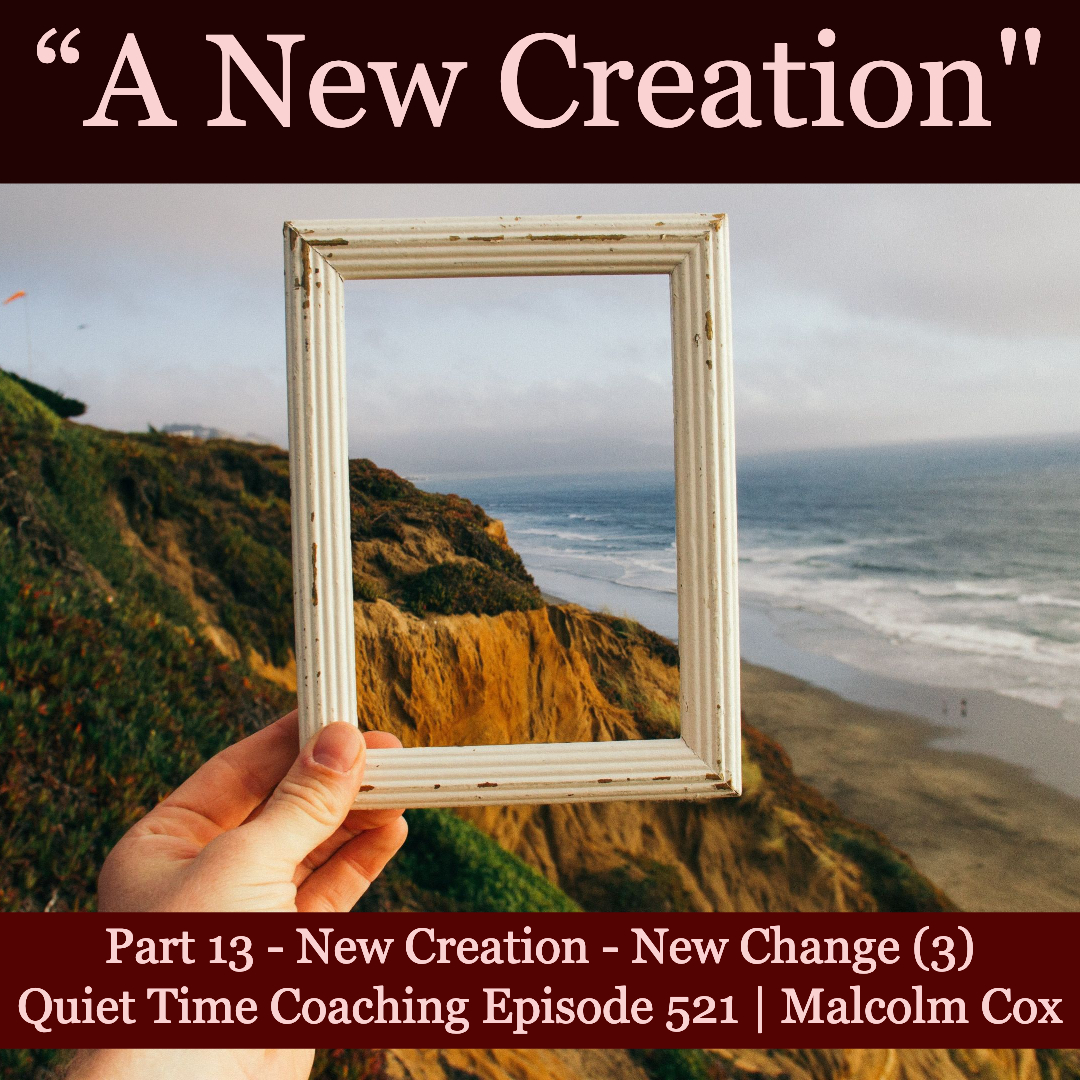
We continue our series today based on the book, “Unloading the Overload: Stress management for Christians” by Chris Powell and Graham Barker.
Today we explore the issue of exercise and diet. How do our nutrition and fitness effect our times of quiet with God – or not.
I should begin by stressing that none of the advice here is given by a medical professional. I’m simply speaking from my own experience and reading. That having been said, let’s explore this topic. Does what we consume and how we look after our bodies make a difference to the quality of our connection with God?
I’ll lay my cards on the table. I believe the answer is, “yes”. It is insofar as it is within our control to choose what we eat and drink and how often, and have any significant influence over the health of our bodies. I believe the care and nurturing of a physical state has an impact on the spiritual. It is not correct to see the spiritual and the physical as being of completely different domains and having no impact on one another. We are not simply souls which temporarily inhabit a broken and corrupted flesh. It should be borne in mind that we will have a body in the next life. The apostle Paul puts it well:
“Therefore, since we have these promises, dear friends, let us purify ourselves from everything that contaminates body and spirit, perfecting holiness out of reverence for God.”
(2 Corinthians 7:1 NIV11)
Our bodies were made for physical action. God intended us to look after what he had created (Gen 2.15). This involved and still involves hard work. Our bodies react positively to physical exercise helping us to produce chemicals which provide natural feelings of well-being. God made us this way. When we denigrate our bodies, or minimise the significance of a reasonable level of physical fitness, we deny ourselves gifts that God is offering. To do such a thing must have a deleterious effect on our connection with the father.
Let me share some personal experiences.
1. Exercise
I find prayer walks very significant in my relationship with God. On occasion I enjoy sitting still and meditating in prayer, but prayer walking is a staple for my quiet times. However, I have dodgy knees. So far I’ve had six operations on my two knees. They creak, and, if I don’t take care of them, cause significant pain. Not too long ago I was in severe pain and could not walk much at all. It had a very negative effect on my connection with God. I decided to take things more seriously. I did further research and discovered that it might be helpful to take glucosamine regularly and drink pomegranate juice. The frequency of walking also makes a big difference. Therefore, I take those glucosamine supplements three times a day, drink pomegranate juice daily and walk every day. No matter what. I’ve also taken up cycling. First on a stationary trainer in my garage until I was more confident (and the weather improved!), and now cycling the local lanes and canal tow paths.
There are multiple benefits to this, of course. But primary amongst them is that, at least at this point, my knees are in good enough shape to allow me to take as many prayer walks as I desire.
On another note, I have significant neck pain as a result of a disc problem. It interferes with my sleep, which make being alert and fresh for my morning time with God a challenge. I decided to attempt some action on this protracted problem. My wife suggested contacting a friend, Debbie Bishop, who is an expert personal trainer. She came over and designed a pilates-style strength-training plan which helps my entire body, but especially my knees and neck. After two sessions I was in less neck pain and sleeping better. Sleep is a key component in being prepared for a time of quiet in the morning. Of course, we cannot control everything to do with our sleep (I was woken this week by a dog barking at 4.41am), but what we can influence we surely should.
A couple of thoughts about exercise. There are many theories about what is most helpful, and your doctor is probably your best source of advice here, but, the key is to find a mode of exercise which you find:
- Reasonably enjoyable
- Which you can maintain regularly
- Helps you to be ready for God in the mornings
2. Nutrition
I don’t believe in diets – at least not diets in the sense of the multi-billion industry encouraging us to part with huge amounts of cash for dubious weight loss goals. However, it is clear that what we put into our bodies has an enormous impact on our well-being physically and, it seems to me, spiritually.
In the last few years I’ve taken my nutritional more seriously. It all began with a trip to Ghana (which was a tremendously positive spiritual experience), and picking up a rather nasty stomach bug. Having lost a little over a stone I felt much better, and decided to maintain this new weight. Of course, being closer to my ideal weight also blessed my knees. Since then I’ve hovered around 13 stone (182 pounds for my American cousins, or, 82 Kilos) which is about right for me. More recently I’ve taken to eating a more plant-based diet.
By far the most significant issue is becoming self aware of what helps and what hinders. Let me give you an example.
I travel to the Thames Valley churches of Christ on Friday nights. By the time I get back it’s typically anywhere between 11 PM and 11:30 PM. Frequently, I’ve been leading worship or teaching, or in significant conversations and training opportunities. My mind is buzzing when I get home. As you can imagine it is a little difficult to switch off. What I did for quite some time was watch some television and drink a glass of red wine until I felt more ready to sleep. The upshot was rotten Saturday morning quiet times! I was lethargic, and often had a headache.
Is watching television an evil thing? Is drinking a glass of red wine sinful? Of course not. But these “solutions” were hindering not helping. I have since developed a new strategy which involves drinking more non-caffeinated fluids on the way home as well as a healthy snack (often dates or a banana). When I get home I tidy away the equipment I have brought back from the meeting, tick off the completed items from my list for the day, and write down the priorities for Saturday. Then I listen to a podcast which has nothing to do with church stuff. It’s usually a Goon show from the 1950s which I know almost word for word by heart. Occasionally I use an app called “Feeling Good” and a recording on that app called “Yes you can… Sleep soundly”. Listening to the Goons or the app I drift off to sleep earlier than I otherwise would do, and wake up more refreshed than in the past.
None of this guarantees a good quiet time on Saturday! But I do know I’m in a better place with a better chance to enjoy that time of quiet with God.
A few caveats. First of all, I understand that some of us may not be in a position to exercise in the traditional sense. It doesn’t mean, that if you are confined to your bed with illness that you cannot have a good time of quiet with God. God is able to help us to triumph through all circumstances. I’m only talking about what is within our control.
It’s also not the case that I’m suggesting a particular exercise regime or set of nutritional choices as being more godly than another. This is much more about being conscious of the choices we’re making and aware of whether they are helping or hindering our relationship with God.
Do you agree with me that the way we treat our bodies has a significant impact on our relationship with God? In what way do you feel your choices in these areas are having an impact on your times of quiet with God?
Do you have any tips you could share that might help us develop better thinking and decisions regarding exercise and nutrition?
Scriptures referred to or you might find useful: 2 Cor 7.1; 1 Tim 6.17; Luke 12.23; Matt 4.4; 1 Tim 5.23.
Recent resources I have found helpful include:
- “Younger Next Year” (thanks for the recommendation, Adrian Hill)
- “How not to die” (and associated website & podcasts)
- “Glittering Vices” (see the chapter on gluttony)
- “Feeling Good” app
Please add your comments on this week’s topic. We learn best when we learn in community.
Do you have a question about teaching the Bible? Is it theological, technical, practical? Send me your questions or suggestions. Here’s the email: malcolm@malcolmcox.org.
If you’d like a copy of my free eBook on spiritual disciplines, “How God grows His people”, sign up at my website: http://www.malcolmcox.org.
Please pass the link on, subscribe, leave a review.
God bless, Malcolm
PS: You might also be interested in my book: “An elephant’s swimming pool”, a devotional look at the Gospel of John

